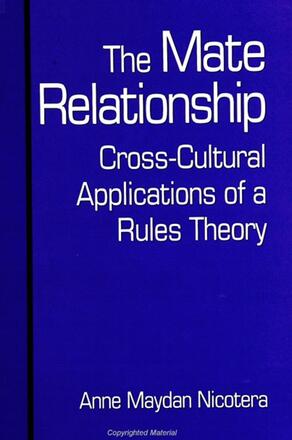
The Mate Relationship
Cross-Cultural Applications of a Rules Theory
Alternative formats available from:
Provides research applications of a rules theory of mate relationships to several American cultures and two non-American cultures.
Description
This book presents research applications of a rules theory of mate relationships of several American cultures and two non-American cultures. The theory is summarized in seven basic propositions, several of which have been previously tested and supported. The research contained here expands the depth of the work by examining attributes and levels of mateship in several American co-cultures, one Caribbean culture, and one Asian culture, and extends the breadth of the work by moving into the areas of relational quality, maintenance, and conflict.
Seven propositions presented are 1) perceived self-concept support is the basis of interpersonal attraction; 2) different types of perceived self-concept support are the basis for different types of interpersonal relationships; 3) different types of self-concept support are the basis for entry into and increasing intensity of interpersonal relationships; 4) the type and form of self-concept support is homogeneous by culture; 5) conflict which threatens self-concept support on crucial relationship variables—the lack of it or attacks on it—is the most potentially dangerous type of conflict in interpersonal relationships; 6) negotiation of differences in perceptions of self-concept support on crucial relationship variables cements interpersonal relationships; and 7) quality interpersonal relationships consist of intimacy, personal growth, and effective communication on the crucial relationship variables.
Anne Maydan Nicotera is Associate Professor in the Department of Human Communication Studies at Howard University. She has also written Interpersonal Communication in Friend and Mate Relationships and edited Conflict and Organizations: Communicative Processes both published by SUNY Press.
Reviews
"I like the focus on extending the research across cultures. The author is sensitive to how culture is talked about. Since the mid 1980s the field of interpersonal communication has seen a surge in interest in the study of personal and social relationships. As a book on the character of mateship across cultures the work is timely and significant. Additionally, the work adds to the theoretical understanding of mateship process by grounding itself in a specific theoretical framework." — Katherine L. Adams, California State University, Fresno